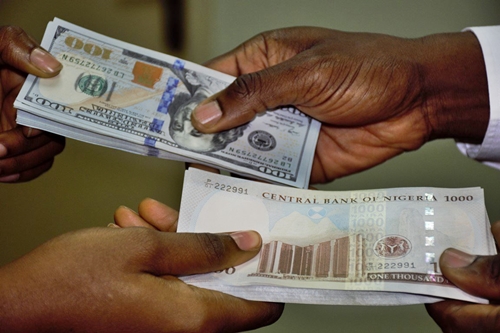
File photo
The Bankers’ Committee rose from its meeting Tuesday with a
consensus that commercial banks in the country should henceforth desist
from charging customers commissions on retail foreign exchange (forex)
transactions, ThisDay reports.
Retail forex transactions include the purchase of dollars for
personal travel allowance (PTA), business travel allowance (BTA), school
fees and medicals.
The chief executive of the FSDH Merchant Bank Limited, Mrs. Hamda
Ambah, disclosed this while briefing the media at the end of the meeting
in Lagos.
Desirous of alleviating the pains of retail forex consumers, the
Central Bank of Nigeria (CBN) in May last year had directed all banks to
sell the greenback for BTA, PTA, tuition and medical fees to customers
at not more than N360 to dollar, down from N380 to the dollar at which
forex was sold previously for retail transactions.
The CBN sells to banks at N357 to the dollar. However, it was
learnt that some commercial banks have been charging commissions on such
transactions.
To this end, Ambah explained: “One of the things we discussed
was a measure that would provide some sort of palliative for all
individuals in the country to at least enjoy the benefit.
“It was agreed that the forex that banks sell to their clients
for PTA, BTA, school fees and medical bills, that henceforth all banks
should charge N360/$ and there would be no commission whatsoever charged
by the banks for such sales.
“We want to make sure that this is uniform across all banks.
Customers should report any bank that goes outside of this. It has
actually been N360 for a while, but some banks in addition to the fee,
are charging commissions.”
Earlier, the director, Banking Supervision, CBN, Alhaji Ahmed
Abdullahi, who was also at the briefing, put the present value of the
country’s external reserves at $42 billion, higher than $40.4 billion
last month.
The last time the country’s reserves derived mainly from proceeds of crude oil exports hit $42 billion was in December 2013.
Recent Eurobond issuances have also helped in boosting Nigeria’s reserves position.
No comments:
Post a Comment